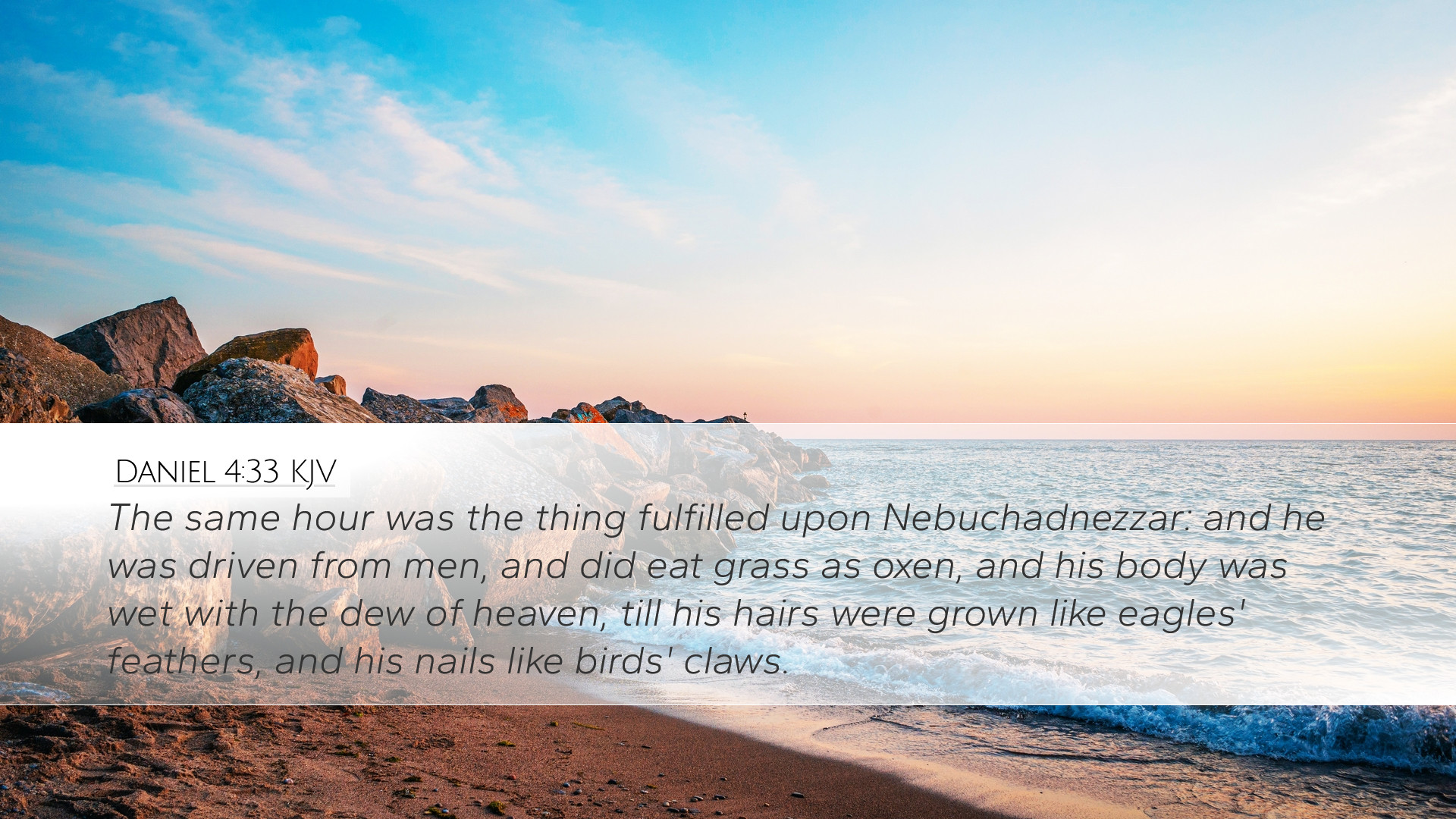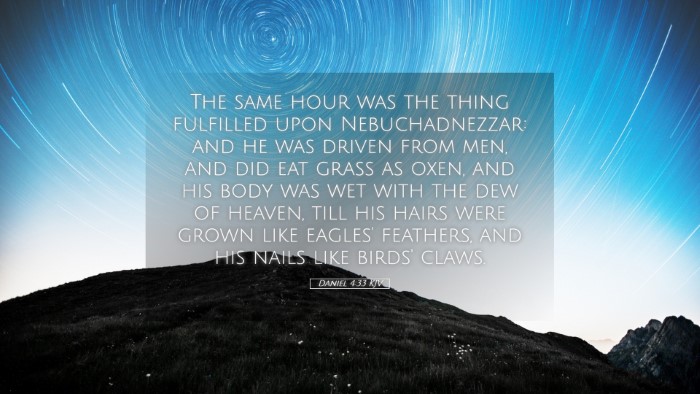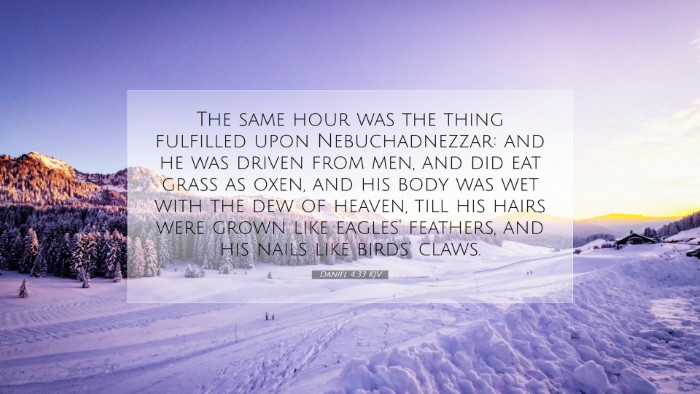Commentary on Daniel 4:33
Verse Text: "The same hour was the thing fulfilled upon Nebuchadnezzar: and he was driven from men, and did eat grass as oxen, and his body was wet with the dew of heaven, till his hairs were grown like eagles' feathers, and his nails like birds' claws."
Introduction
Daniel 4:33 presents a profound moment in the narrative of Nebuchadnezzar’s life, embodying themes of pride, divine judgment, and restoration. This verse concludes the account of Nebuchadnezzar’s dream and its subsequent fulfillment, showcasing the extensive consequences of arrogance against God.
Contextual Background
Throughout the Book of Daniel, we observe the interplay between God's sovereignty and human authority. Nebuchadnezzar, the king of Babylon, is initially portrayed as a powerful ruler, yet his pride leads him to defy God's authority. This chapter captures the psychological and spiritual downfall of Nebuchadnezzar as ordained by God, a topic explored by various commentators.
Exegetical Insights
According to Matthew Henry, this passage highlights the fulfillment of God's decree against pride. The event described in this verse occurs immediately, illustrating the swift nature of divine judgment. God’s patience has limits, and when Nebuchadnezzar's heart was hardened in pride, he experienced a drastic transformation.
Albert Barnes notes the severe consequences of pride depicted here. The king becomes like a beast, feeding on grass and living in the open. This condition symbolizes a total fall from dignity and the consequences of failing to acknowledge God's supreme authority. Barnes emphasizes that God humbled Nebuchadnezzar as a merciful act, perhaps providing the king with an opportunity for reflection and repentance.
Adam Clarke also reflects on the state of Nebuchadnezzar’s insanity. His description of the body “wet with the dew of heaven” signifies his total disconnection from civilized society. Clarke underscores the poetic nature of this passage and how it epitomizes the degradation that follows unchecked human pride.
Theological Themes
- Divine Sovereignty: The events signify God’s ultimate control over human affairs, reinforcing that no matter how powerful one might be, they are still subject to divine will.
- The Nature of Humbling: The humbling of Nebuchadnezzar exemplifies the principle that those who exalt themselves will be brought low, demonstrating God's active role in moral governance.
- Transformation and Restoration: Although this passage focuses on judgment, it foreshadows a potential restoration. Recognizing his error, Nebuchadnezzar could return to his kingdom, illustrating the hope inherent in repentance.
Application for Pastors and Theologians
This narrative serves as a powerful reminder for pastors and theologians to convey the message of humility in ministry. Pride can dangerously obscure one’s view of God's grace and authority. Daniel 4:33 warns against the intoxicating nature of power and success, encouraging believers to maintain a posture of humility before God.
Furthermore, it invites reflection on God's judgment. While the immediate implications of the verse speak to Nebuchadnezzar's fate, it also raises questions about the church's collective witness in the world. Are leaders and congregants alike recognizing God’s sovereignty in all aspects of life? How do we communicate the necessity of humility in our contemporary context, where self-promotion often overshadows self-denial?
Conclusion
Daniel 4:33 serves as a rich source of theological reflection, carrying profound implications for contemporary faith and practice. The synthesis of insights from Matthew Henry, Albert Barnes, and Adam Clarke underscores the ultimate message of the passage: that God’s sovereignty prevails, and pride leads to downfall.
As we engage with this text, may we all be reminded of the importance of humility, the nature of God's justice, and the hope of restoration for those who recognize their need for divine grace. This narrative is not just about the judgment; it challenges us to live in accordance with the recognition of God’s glorious sovereignty.


